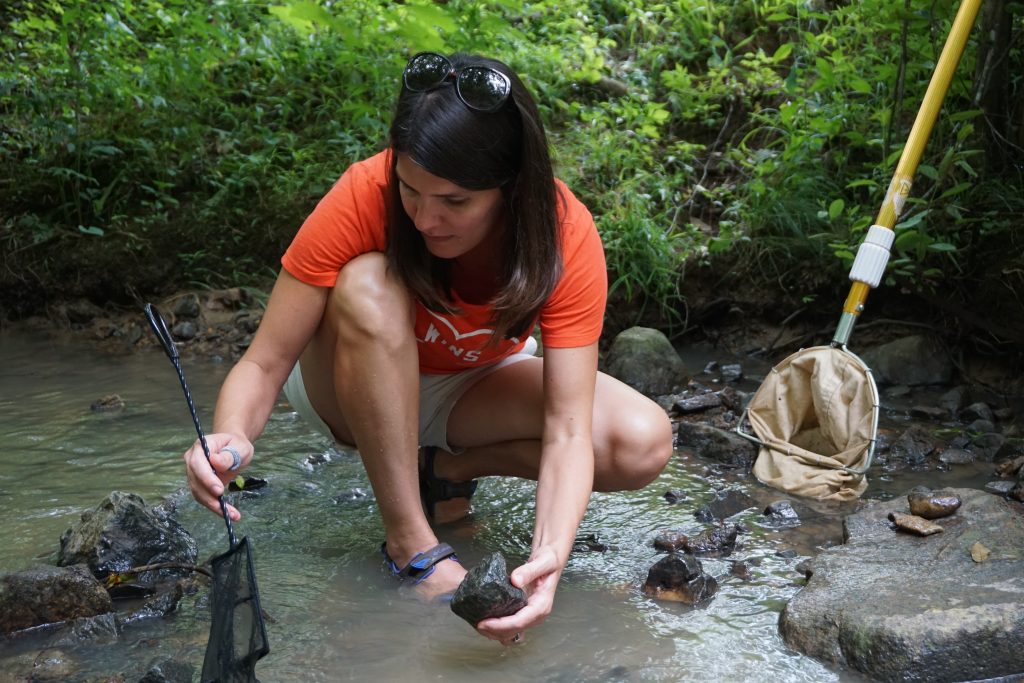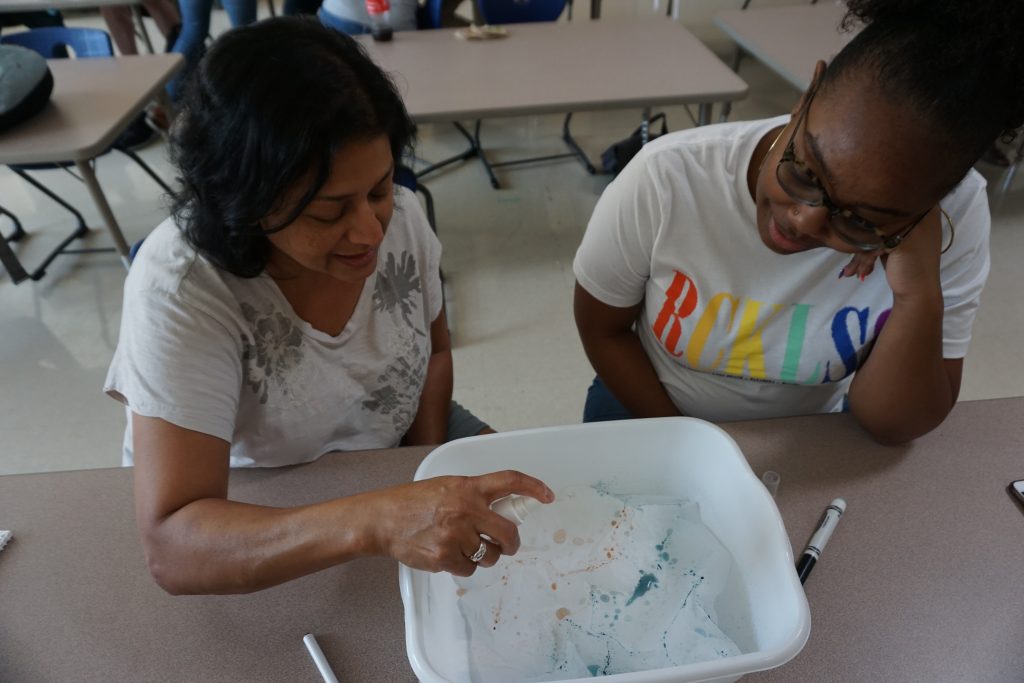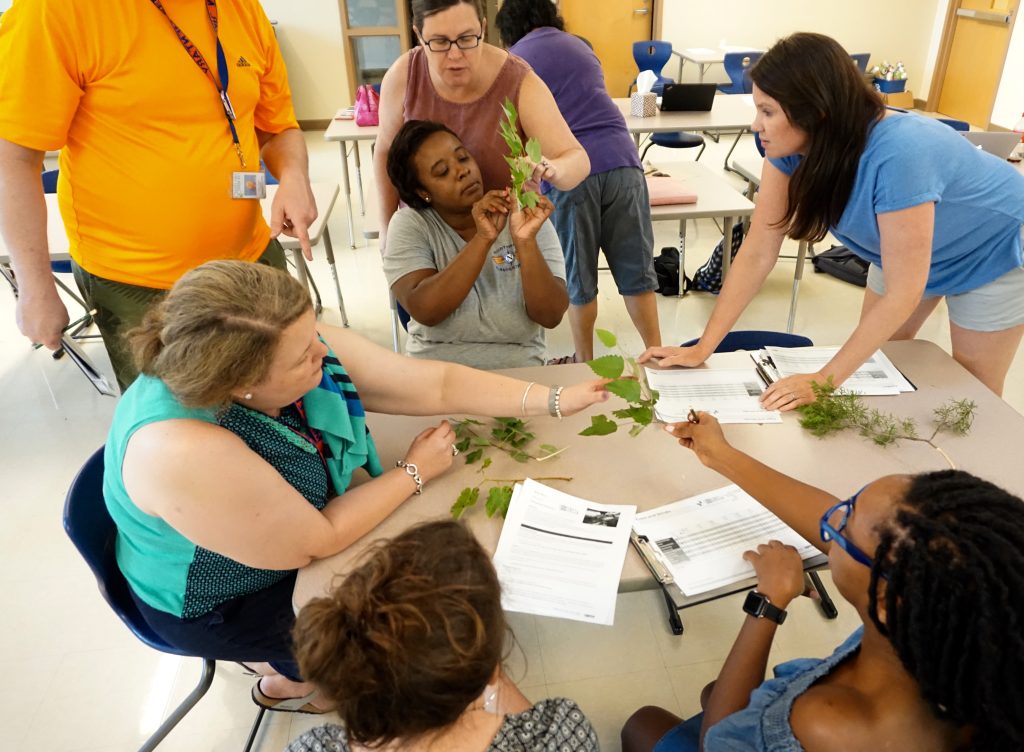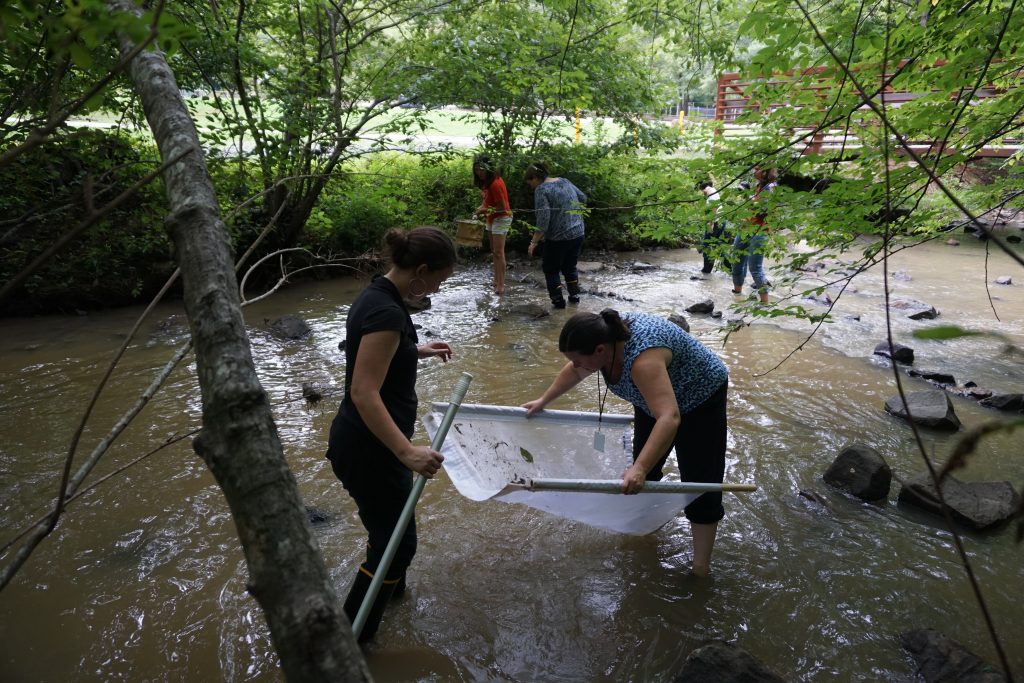IE, Northside Elementary Create Hands-On, Nature-Based Curriculum
August 2, 2019
Over the past year, the Institute for the Environment’s Center for Public Engagement with Science (CPES) has teamed up with teachers from Northside Elementary School to create a curriculum that will engage third through fifth grade students with science and the natural world.
Through a series of professional workshops supported by Chapel Hill-Carrboro City Schools and a $40,000 grant awarded to the school system by the Duke Energy Foundation, the Center and Northside’s teachers have worked to incorporate the school grounds, nearby forests, and Bolin Creek into their lesson plans.
Through the workshops, CPES hopes to not only engage teachers with nature, but their students as well.
“One of our end goals is to help teachers feel like they have the confidence to be effective teachers of science while using the outdoors,” says project leader Sarah Yelton, who is the environmental education and citizen science program manager for CPES.
The professional development workshops have met once a month for the last year to introduce teachers to different experts from UNC-Chapel Hill, model activities outside, and plan lessons that incorporate environmental science in engaging ways. Yelton says that the workshops involve productive dialogue between the teachers and the center’s environmental education specialists in order to create lesson plans that fit into the teachers’ overarching curriculum.
The team of environmental education specialists has created six curriculum units that include hands-on activities exploring not only the life, physical, and earth sciences, but writing, math, reading, and social studies as well.
To include the outdoors in required writing standards, teachers at Northside learned how to use nature journaling with their students, which also introduced the idea of field observations for science. Students wrote from the perspective of invertebrates living under fallen logs, or about what they saw while visiting forests or creeks. One teacher had her students build a Lego character, take pictures of it somewhere outdoors, and write about what that character may have encountered in that natural space. The teachers noted that students’ writing is more rich and detailed when using outdoor spaces for inspiration.
By involving professors and researchers from UNC, teachers and students were able to learn from experts during professional workshops and class visits.
Michelle Haskin, a professor in the geology department and the mother of a Northside student, developed a walking field trip for students to learn about the types of rocks on their school grounds. During a scavenger hunt, the students learned about erosion and the process of rock formation.
Yelton says that students, parents, teachers, and administrators have been excited by the program’s results so far.
In late May, Duke Energy provided Chapel Hill-Carrboro City Schools an additional $7,500 grant to continue the program. Although Northside is the only elementary school to have worked with CPES to create a hands-on science curriculum, Yelton hopes that they will eventually be able to extend the program to other schools.
“Comments that the teachers shared at our year-end celebration and in their program evaluations showed that they were thinking about their teaching in new and different ways,” Yelton says. “I’m excited to see where how this initiative continues to grow in the future.”
Story by Annie McDarris ’20
Annie McDarris a graduate student within the School of Media and Journalism as part of the Environment & Science Communication Dual Degree Program. She completed her bachelor’s degree in environmental studies in May 2019 and is working as a communications intern this summer with the UNC Institute for the Environment. After she graduates, McDarris plans to continue writing about environmental issues, particularly on the topics of conservation and water quality.



